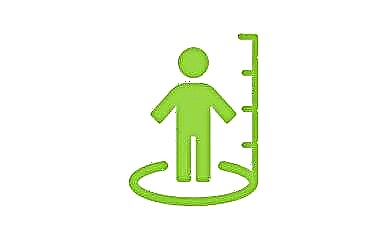Whims and disobedience are the norm for all children who are just embarking on the path of socialization and do not yet know the norms of behavior in society. The problem is that when a child is very young, it can be difficult for parents to understand the nature of his aggressiveness, hysterics, and inattention. What are these problems with the development of the baby, which require referral to a neurologist and other specialists? Or is the weirdness of behavior due to a common lack of upbringing? The advice of a professional psychologist can help parents find answers to these questions.

Good manners test
To quickly understand the reason for the odd behavior of the child, it is useful for mom and dad to become ideal parents for a few days. During this period of time, in any situation, one should remain calm, not shout at the baby, not scold him, not show irritation and discontent. Ideal parents do not need to demand impeccable behavior from a child, because he does not yet possess etiquette, good manners, and is not fully responsible for his words and actions. At the same time, your requirements for the baby must remain objectivity, consistency and consistency with the actions of other family members.
If the problem lies in parenting mistakes, then during the experiment, the baby's behavior will improve. Of course, he will not immediately turn into an angel. However, feeling positive and understanding on the part of the parents, the child will be more willing to listen to them, will begin to agree to fulfill their requests. The main conclusion of the good manners test is as follows: for a child to behave well, parents must be attentive, responsive and benevolent.
When you are good, your child behaves better too.
Behavior diary
If positive dynamics did not appear during the experiment, the main problem in the baby's behavior should be highlighted - the one that causes the parents the most anxiety. Perhaps the child withdraws in himself for a long time or, conversely, throws prolonged tantrums. Observe what provokes such reactions, how the child behaves during these periods, making appropriate entries in the diary. In the future, this will help the specialist diagnose and make recommendations for education or treatment.
During observations, and indeed in any situation, you cannot blame the baby for disobeying and upsetting parents. Adults need to understand that the child suffers too. Every baby wants to receive encouragement from mom and dad, to hear words of approval. If he doesn't deserve it because of his bad behavior, he may simply not be able to behave differently.
When filling out the diary, you should pay special attention to:
- Date and time. Behavioral deviations and mood swings in babies are often triggered by drowsiness, fatigue, bad weather, unpleasant sounds, and even too bright or dim light in the room.
- Thirst and hunger. Whims and tantrums can serve as SOS signals, which indicate that it is time to feed and drink a child. From a hungry toddler, you can hardly demand ideal behavior. Even adults, having skipped a meal, often become nervous and cannot concentrate on anything.
- Temperature. Any pediatrician will tell you that it is better for a child to feel a slight coolness than to sweat in clothes that are too warm. It is difficult for babies to endure the heat - they feel physically ill, and then there is no time for parental requests and requirements. At the same time, a frozen child can also remain deaf to your requests and demands.
- Reactions to praise and censure. Favors and censures are tools to help parents educate their little one. If a child is happy when he is being praised, upset when he is being scolded, these are positive signals. With its development, most likely, everything is fine, and the problem lies in the mistakes of upbringing.
- The presence of spectators. Children quickly learn that manipulation can achieve a lot from adults. Observe how the child behaves in front of guests and in their absence. If in the presence of strangers he is a good guy, and scandals begin only alone with his parents, the baby is well developed and smart.
Now is the time to become familiar with common child behavior problems that are troubling to parents.
Symptom number 1. Aggressiveness

For an adult, any manifestation of aggression on the part of a child seems unmotivated. To make sure of this, you need to try to put yourself in the baby's place. For example, if you want to swing on a swing, a child can push someone who is already sitting on it. Physical aggression is the simplest solution, as asking and negotiating is much more difficult. If the baby still speaks poorly, then all the more he will not be able to clearly express his desire, as any adult would.
When to start worrying?
If the parents do not scold the baby for a whole year, communicate with him kindly, explain the rules of behavior, but he continues to behave aggressively with others, perhaps he has developmental problems. Parents should also be worried about auto-aggression - the child's desire to bite, scratch himself, bang his head against the wall. In these ways, the baby takes out anger and resentment, doing it involuntarily.
Parents should also be alerted that the baby behaves in the same way with loved ones and strangers. Usually, children allow themselves liberties only when they are alone with their mom, dad, grandmother. With a kindergarten teacher or nanny, they are more restrained.
Symptom number 2. Shyness or Autism?

In the 21st century, it is believed that a person must be open and sociable, communicative in order to succeed in his career and personal life. If the baby prefers quiet games in solitude, has little contact with peers in the sandbox, parents perceive it as selfishness at best, and as autism at worst. It is important to understand that everyone's characters and temperaments are different. The desire to be alone can also be a psychological "property" in which there is nothing terrible.
When to start worrying?
Parents should sound the alarm if their child does not seek to communicate with anyone at all: he does not participate in noisy games, does not leave the room even to those guests who brought him gifts, ignores familiar children and, in general, contacts only some family members. To rule out autism, it is important to see if your toddler becomes less shy when the interaction has been going on for a while. If, for example, by the end of a children's party or a friendly conversation he “thaws out”, then we are talking about the usual isolation. Otherwise, it is necessary to take him to a psychologist.
Symptom number 3. Carelessness

Many parents complain that their children cannot concentrate on one lesson for a long time, they make mistakes due to inattention. Adults believe it will negatively affect grades in school. In reality, parents are often overly demanding. It is important to remember that up to 6 years old, the baby is able to maintain a high level of performance only for 15-20 minutes. Then he gets tired and his performance inevitably decreases. At the same time, it is very important that his motivation is constantly supported with the help of rewards. Then the successes will be much higher, and the educational process itself will cease to be a hard labor.
When to start worrying?
The real wake-up call is the child's inability to concentrate on something for more than 5 minutes. This applies to all types of activities. If the kid quickly loses interest in reading, but for hours diligently puts together the figures from the constructor, then the parents are simply choosing inappropriate tasks for him. Observe what distracts your child and when. If he prefers pointless walking around the house to any activity, this is not a good sign.
Symptom number 4. Increased activity

Every child is an inquisitive fidget who needs to see, touch, taste everything. This common childhood trait can be easily confused with hyperactivity. Still, there is one important feature of "normal" activity: it must be productive and purposeful. If you understand what the goal is behind certain actions of the child, then there is no reason for concern. When a healthy baby climbs on the closet, he imagines himself as a climber or looks for sweets hidden by his mother. A hyperactive child does it just like that, without a specific purpose.
When to start worrying?
Parents should start worrying if their child's over-activity causes them to commit embarrassing and dangerous behaviors that threaten their health. For example, if a toddler jumps from a great height, if a child climbs up to large dogs in the yard, runs out onto the road without responding to warnings from adults. In such cases, specialist advice is required.



